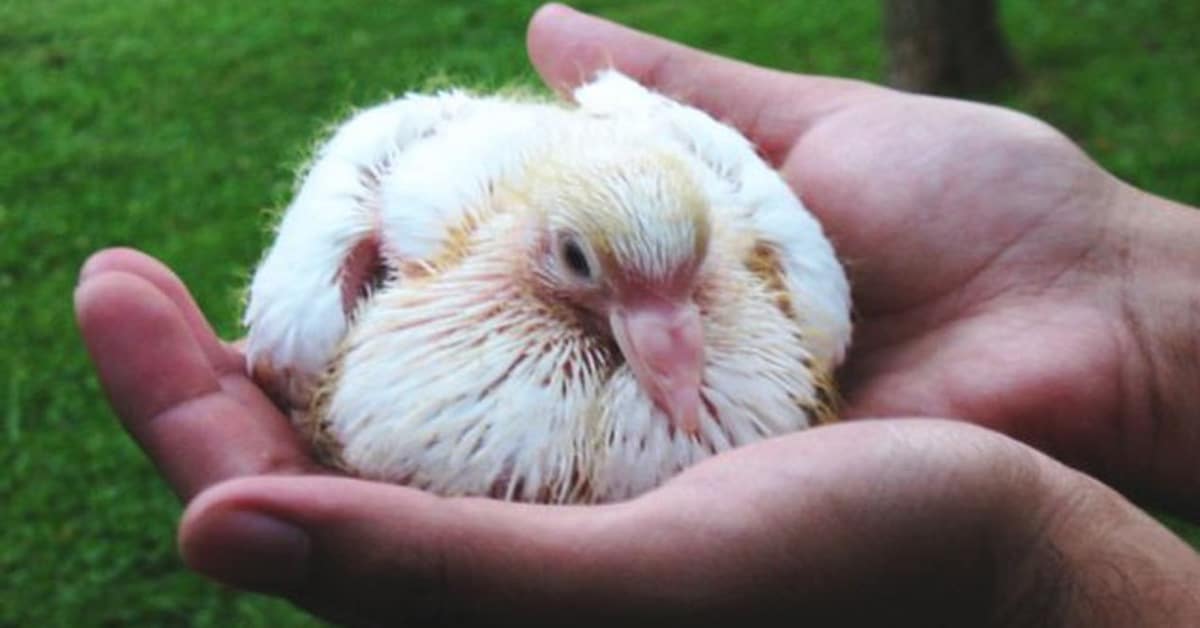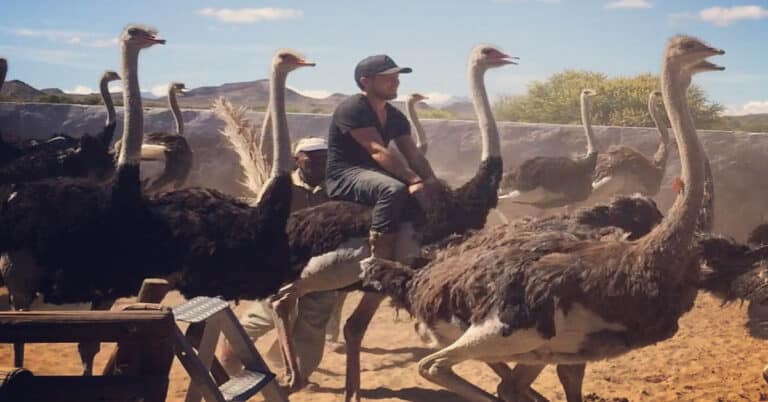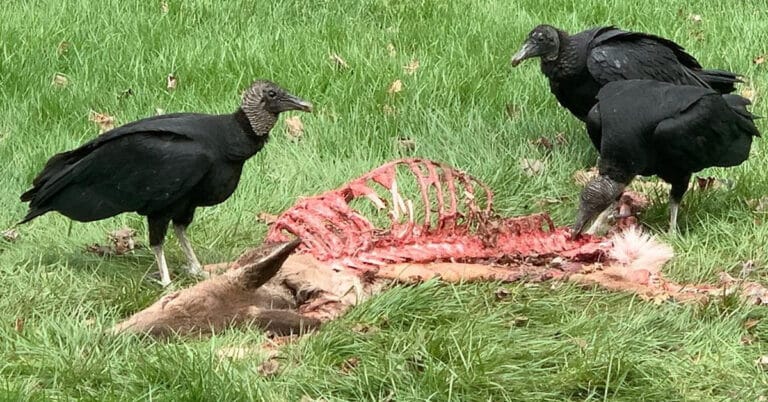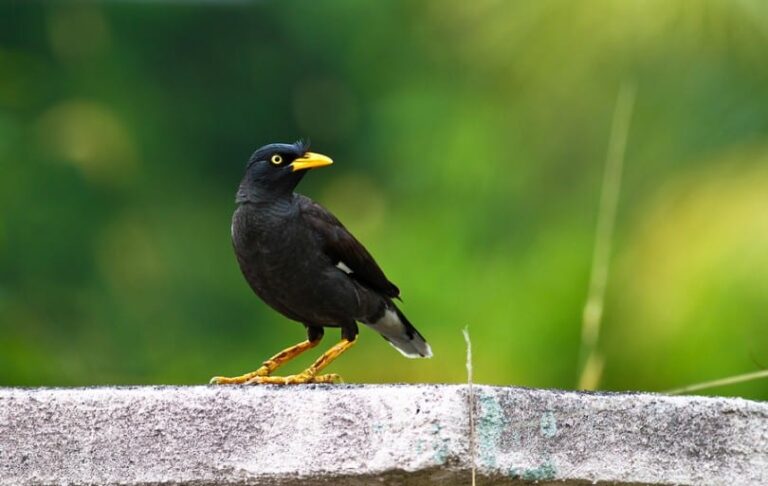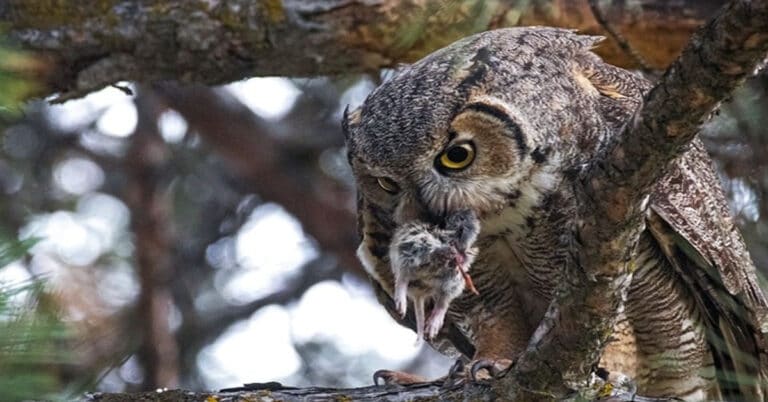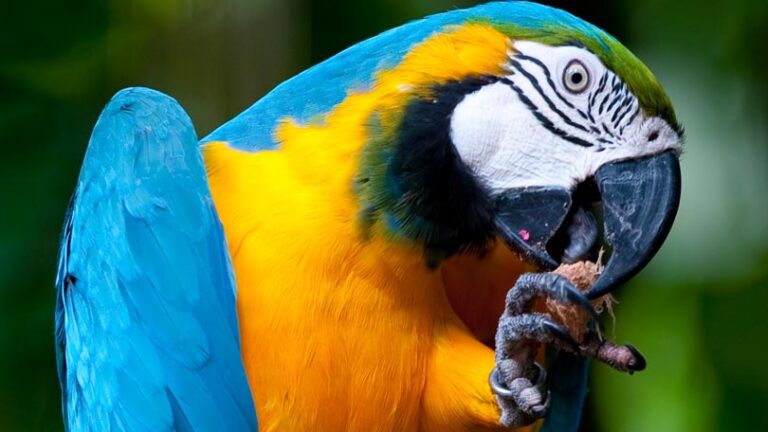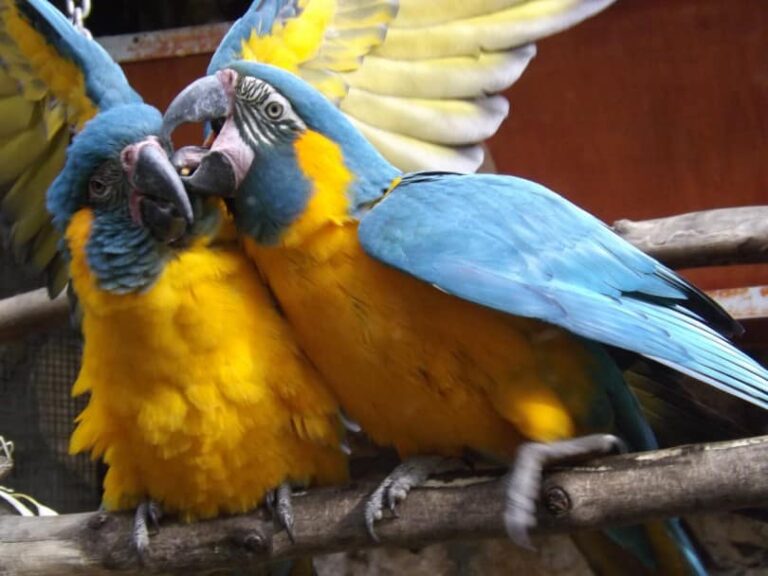Baby Pigeon – Key Characteristics, Personal Traits & Tips for Caring
Society considers pigeons to be quite social birds that don’t shy away from being close to people. And indeed — at first glance, these sociable birds seem to have nothing to hide from people. Still, despite such proximity, sometimes it seems like baby pigeons appear out of nowhere.
The fact that you haven’t seen a baby pigeon anywhere is not even your fault. No, you’re not being careless or failing to observe the little things in the environment around us. The thing is that baby pigeons remain in their nests for 6 weeks before they’re finally able to explore the world. During this time, a baby pigeon grows and develops into an adult pigeon.
In this article, we aim to explain all you need to know about baby pigeons and explore their characteristics, unique traits, and natural habitat. In the end, we’ll also provide some useful tips on how to take care of an abandoned baby pigeon.
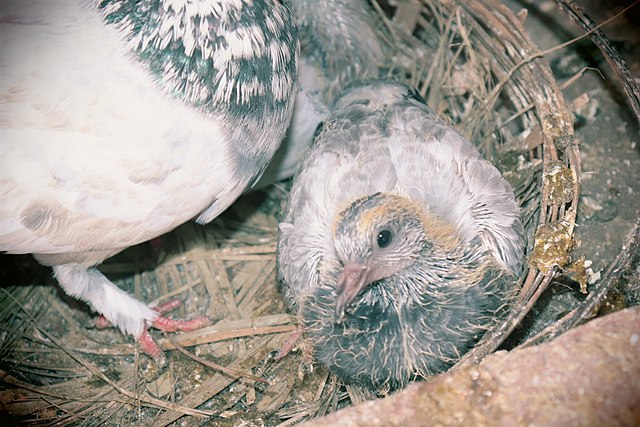
What Does a Baby Pigeon Look Like? Key Features & Main Characteristics
Perhaps you will agree with us that everyone’s definition of beauty is different. However, even a short look at baby pigeons will be enough to draw one simple conclusion – they are objectively not as adorable as other baby birds. Did we manage to pique your curiosity and make you wonder what newborn pigeons look like?
After birth, pigeons usually measure 5 cm in length and weigh approximately 15 grams. As they grow, they gain about 4–8 grams every day and finally reach about 350 grams by the time they are 1 month old.
You would undoubtedly have noticed that pigeons have beautiful feathers that are yellow-green and purple in adulthood. Their newborns are different in this aspect as well — they have gray and brown feathers. The purpose of this coloration is camouflage — to blend in with their natural environment in order to hide and as a result, protect themselves from predators.
The pink, large, flat beak and dark eyes are two other extraordinary characteristics related to a baby pigeon. Unlike their parents, who are characterized by light-colored eyes, the dark eyes provide the baby pigeon with a creepy look.
After discussing their visual characteristics, we should know that their personality also differs from adult pigeons, who tend to display a self-assured demeanor. Unlike their parents, baby pigeons are usually more shy. Because of their shy nature, they prefer to remain near their nest. This behavior is related to their feelings of insecurity as well as the challenges they face when trying to face their surroundings alone, without their parents.
What Makes Baby Pigeons so Unique? 3 Main Considerations
1. Baby pigeons are surprisingly smart
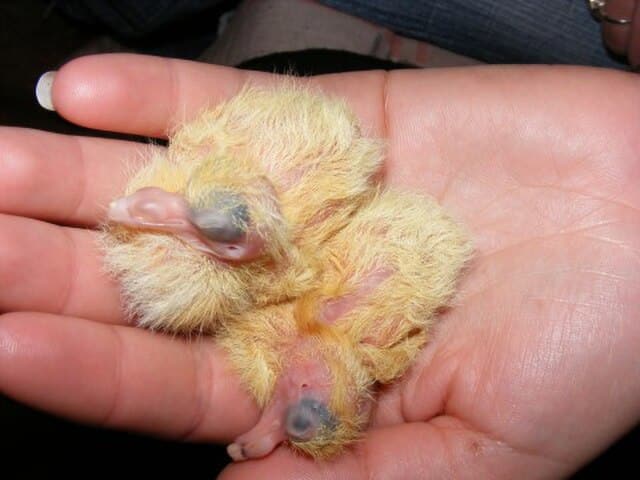
At first glance, the pigeon doesn’t stand out from other birds but the reality is that it’s smarter than most birds. Don’t think that this is just the opinion of a single person – scientists have proven their intellectual abilities with internationally recognized test results.
Certain pigeons that have coexisted with humans have demonstrated the ability to pass a test known as the “Mirror Test,” renowned for its simplicity and reliability. In this examination, the bird is positioned in front of a mirror to determine whether it can identify its reflection. Aside from pigeons, only 8 creatures have passed this test effectively. Dolphins and orcas are among those animals.
But the Mirror Test isn’t the only proof in scientific studies that shows the intelligence of pigeons. For instance, scientists have also confirmed that pigeons have higher self-cognitive abilities than 3-year-old children who have difficulty recognizing their self-image.
2. Baby pigeons are born with excellent navigational and visual skills
Pigeons are known for their ability to navigate places by remembering visual landmarks. These birds can learn and follow frequent routes at home, depending on the complexity of the terrain below them. As part of a joint study by researchers from the University of Oxford and the Zoological Society of London, 31 pigeons were released from four different sites around Oxford. By observing them, the researchers found that pigeons perfectly remember their flight routes.
Carrier pigeons have been immensely valuable in times of war as messengers and with the advancements in technology, as photographers. They possess a homing ability that allows them to transport messages to their military unit located safely far from the enemy lines during both the First and Second World Wars.
Even though humans and other intelligent animals have much larger brains and better cognitive abilities than pigeons, it turns out that pigeons have far better cognitive maps, which means they can navigate better than humans.
3. Baby pigeons have exceptional hearing and sight
It’s a well-known fact that when a baby pigeon is born, it can’t see anything around it. Their vision starts to evolve only after a few weeks of hatching. Afterward, a baby pigeon can observe the objects from a faraway distance.
But this isn’t the only fascinating ability of a baby pigeon. What’s even more exciting is that they are able to perceive their surroundings in a 340º range and for this, they don’t even need to turn their heads.
Believe it or not, pigeons can even predict volcanic activities and impending distant storms. The reason is that they’re characterized by impressive hearing, which is why they are often used in human search and rescue assignments.
Where Do Baby Pigeons Live?
The wild descendants of the urban pigeons are the rock pigeons, which are found in countries in Western Asia along with Europe, mostly around rocks and mountains. It’s this origin of pigeons that determines why they like to be accommodated in elevated places in city buildings.
The initial reason why pigeons were brought into countries was to use them as a food source and as messengers. But over time, some people set these pigeons free. As a result, today it’s common to see pigeons flying freely in many countries.
Generally, pigeons feel comfortable in elevated habitats and prefer nesting sites that are often inaccessible to humans. Still, they have become dependent on society and the food human beings provide. Consequently, pigeons are also found around farmyards, grain barns, and parks. Most of the time, they live in groups with other pigeons, so it is quite common to come across nesting pigeons that are gathered together in a specific location.
How Do Pigeons Take Care of Their Babies?
Pigeons are very attentive parents. They almost never leave their babies alone without any attention. A significant part of pigeon care is providing milk to their babies. Unlike humans, both parents of pigeons feed their young with milk.
“Pigeon’s milk” is said a bit loudly because we can’t call this substance milk. It resembles milk in texture and it contains a quantity of protein and other essential nutrients. Therefore, its consumption during the initial stage of pigeon growth and development is crucial. As evident, newborn pigeons are unable to stand for themselves and rely entirely on their parents for care and prosperity.
Dependence on the parents means providing security and protection along with food. Pigeons manage to feel safe by arranging such a nest, which is at the same time very cozy, warm, and properly protected from predators.
Do Pigeons Abandon Their Babies?
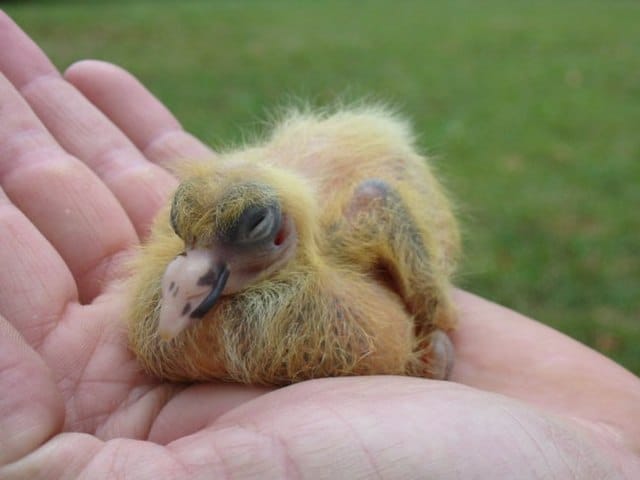
As mentioned above, pigeons are caring and attentive parents and that’s why they rarely leave their infants. The only reason a parent might abandon a baby pigeon is because of a strong sense of fear, usually caused by predators such as cats and falcons. Sometimes they’re even scared of the chaotic activity of people, uncontrolled noise, and unfriendly attitudes towards them.
Unfortunately, when a baby pigeon lives independently from its parents, without food and water, it can’t survive for more than one day. Therefore, if someone finds a baby pigeon without their parent, initially it’s best to consult a veterinarian.
But if you don’t have a chance to arrange an appointment, there’s a way to take care of a baby pigeon yourself. For this, you should create a baby formula with oatmeal and feed it to the baby pigeon. Other than this, a baby pigeon will also enjoy soft fruits, vegetables, and small pieces of bread.
There’s one thing you should be careful about, though — sometimes a baby pigeon might appear hungry but even so, do not feed it large portions. Also, make sure to give the bird water for hydration after each feeding. For this, you can use a plastic syringe or a small baby bottle.
Final Thoughts
Hopefully, you already have all the answers you were looking for about the baby pigeons Did the mysterious life of this unique creature live up to your expectations? Based on this information, you already have some valuable insights and know that baby pigeons not only exist somewhere but are all around us!
Now, when you walk past a place full of pigeons, you will unquestionably remember that somewhere there may be a newlyborn baby pigeon that requires specific care, love, and support.

Nato is a content writer and researcher with a background in psychology who’s eager to explore the wonders of nature. As a travel enthusiast and animal lover, she hopes to inspire others to discover and cherish the beauty and importance of the natural world.

